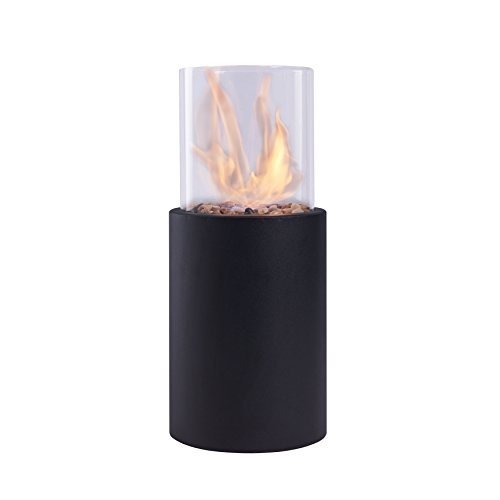
Fireplaces Deals
Overview
-
Sectors Project Management
-
Posted Jobs 0
Company Description
20 Fun Facts About Outdoor Stoves Online

Best Value Fireplaces: An In-Depth Guide
The fireplace has actually long been concerned as the heart of a home, offering warmth, ambiance, and a focal point for social events. Nevertheless, navigating through various options can be frustrating, especially with spending plan restraints in mind. This post presents a useful guide on the best value fireplaces, detailing their types, features, and benefits to help property owners make a sensible choice.
Types of Fireplaces
Fireplaces are available in a range of styles and types, each with various characteristics, expenses, and benefits. Here’s a detailed appearance at the most typical types of fireplaces available in the market today.

| Kind of Fireplace | Description | Average Cost | Pros | Cons |
|---|---|---|---|---|
| Wood-Burning | Burn logs to produce heat and ambiance. | ₤ 1,500 – ₤ 5,000 | Authentic experience, natural heat | Needs routine maintenance, less efficient |
| Gas Fireplaces | Uses natural gas or lp to produce heat. | ₤ 2,000 – ₤ 5,000 | Easy to utilize, cleaner than wood | Limited to gas supply, installation costs |
| Electric Fireplaces | Mimics flames with LED technology and produces heat via electrical power. | ₤ 200 – ₤ 3,000 | Easy setup, setup flexibility | Less authentic feel, higher operating expense |
| Pellet Stoves | Use compressed wood or biomass pellets, supplying an eco-friendly alternative. | ₤ 3,000 – ₤ 4,500 | Efficient, low emissions | Needs electrical energy to operate, requires storage for pellets |
| Ethanol Fireplaces | Burns ethanol fuel, producing flames that do not require a chimney. | ₤ 300 – ₤ 2,500 | No vents required, portable | Higher fuel expense, safety concerns |
Aspects to Consider When Choosing a Fireplace
Selecting the ideal fireplace is not almost looks; it likewise involves practical considerations. Here are vital aspects to keep in mind:
1. Spending plan
- Determine how much you want to invest. Bear in mind that setup and upkeep costs can add up.
2. Space and Size
- Guarantee the fireplace fits well within the space, thinking about both the area readily available and the heating requirements.
3. Fuel Type
- Decide on the fuel source based on accessibility, expense, and the type of ambiance you wish to accomplish.
4. Efficiency
- Decide for units with high-efficiency scores to guarantee you are getting the most value for your cash in terms of heat output.
5. Visual Appeal
- Select a design and style that complements existing decoration and enhances the general appeal of the space.
6. Regulations
- Understand regional regulations, permits, and building regulations that may affect your fireplace setup.
Top Best Value Fireplaces
Based on consumer reviews, specialist opinions, and overall value for money, here are some of the best value fireplaces currently readily available in the market:
1. DuraVent Pellet Stove
- Type: Pellet
- Typical Cost: ₤ 2,000
- Emphasizes: Highly efficient with low emissions, making it an exceptional alternative for environmentally-conscious property owners.
2. Napoleon B36NTR-1
- Type: Gas
- Average Cost: ₤ 2,500
- Highlights: This fireplace is aesthetically attractive and extremely efficient, with a smooth design and adjustable flame.
3. Duraflame Electric Heater Stove
- Type: Electric
- Average Cost: ₤ 200
- Highlights: Affordable and portable, ideal for smaller sized spaces or adding atmosphere to a space without permanent setup.
4. Real Flame Juliet Gel Fireplace
- Type: Ethanol
- Average Cost: ₤ 300
- Highlights: A stylish choice for modern spaces that needs no venting, making it versatile and easy to set up.
5. Vogelzang VG5790
- Type: Wood-Burning
- Typical Cost: ₤ 800
- Highlights: Offers a traditional wood-burning experience with a sleek modern style, ideal for those who treasure the timeless atmosphere.
Frequently Asked Questions (FAQs)
Q1: What is the most cost-efficient fireplace choice?
A1: Electric fireplaces tend to be the most economical in regards to preliminary purchase price and installation, but can have greater operating expenses compared to gas or pellet units.
Q2: Are gas fireplaces safer than wood-burning fireplaces?
A2: Yes, gas fireplaces generally produce fewer emissions and position a lower threat of chimney fires as they do not produce creosote like wood-burning units.
Q3: Can I install a fireplace myself?
A3: While some electric fireplaces enable simple self-installation, other types, specifically gas and wood-burning designs, typically need professional installation due to venting and security issues.
Q4: How do I preserve my fireplace?
A4: Regular upkeep consists of cleaning up the chimney (for wood-burning fireplaces), checking for gas leakages (in gas systems), and making sure appropriate ventilation for electric designs.
Q5: Is an ethanol fireplace a great option?
A5: Ethanol fireplaces are appealing for their modern style and ease of setup. Nevertheless, they can be less efficient and more pricey to run long-term compared to other fuel types.
Selecting a value fireplace that fulfills your aesthetic choices and practical requirements involves thorough research and factor to consider. By comprehending different kinds of fireplaces, their associated costs, and advantages, house owners can make educated decisions that will not only fit their budget plan but also boost the warm and welcoming environment of their homes. Whether choosing an electric, gas, wood-burning, pellet, or ethanol model, the perfect fireplace awaits to change your home.
